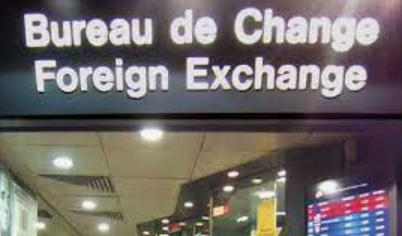The Association of Bureau De Change Operators of Nigeria (ABCON) has issued a stark warning: the livelihoods of approximately three million Nigerians are at stake if Bureau De Change (BDC) businesses are forced to close due to their inability to meet new, stringent capital requirements imposed by the Central Bank of Nigeria (CBN). This precarious situation stems from the CBN’s revised operational guidelines, effective June 3, 2024, which mandate all BDCs to reapply for licenses under new tiered categories (Tier 1 and Tier 2) and comply with significantly increased minimum capital thresholds within a specified timeframe. These requirements set the capital base for Tier 1 licenses at a substantial N2 billion and N500 million for Tier 2 licenses, accompanied by non-refundable fees of N5 million and N2 million, respectively. While the CBN has extended the recapitalization deadline to June 3, 2025, the ABCON president, Aminu Gwadebe, expresses grave concerns that less than 10% of its members have achieved compliance, foreshadowing widespread business closures and the consequent job losses.
The magnitude of the potential economic fallout is alarming. With an estimated 1,500 BDCs operating across Nigeria, each employing numerous individuals and supporting families, the ripple effect of widespread closures could impact millions. Gwadebe underscores the gravity of the situation, emphasizing the “disturbing phenomenon” of potential job losses and the immense challenge facing BDC operators in securing the necessary capital. ABCON has initiated dialogue with the CBN, presenting its case and seeking a more feasible path to compliance. Meetings between ABCON representatives and the CBN in Abuja and Lagos have occurred, with the association hopeful for a positive outcome that safeguards the livelihoods of those dependent on the BDC sector. However, the core issue remains the prohibitive nature of the capital requirements.
The primary obstacle, according to Gwadebe, is the sheer scale of the required capital. He argues that the sums of N500 million and N2 billion are excessive for retail-level entities like BDCs, comparing their operations to bookshops. He criticizes the CBN for applying a banking model to BDCs, highlighting the disconnect between the demands and the operational reality of these smaller businesses. While acknowledging the potential benefits associated with this model, he emphasizes the lack of assurance that the CBN will enforce these benefits, thereby deterring potential investors. The crux of the matter lies in access to the foreign exchange market. Gwadebe points to existing circulars mandating banks to sell foreign currency to BDCs, which are routinely ignored without consequence. This lack of enforcement renders the investment proposition unattractive, as businesses are expected to raise significant capital without a guarantee of market access.
Gwadebe proposes two solutions to address this critical challenge. First, he suggests granting BDCs direct access to the foreign exchange market, bypassing the intermediary role of banks. Alternatively, he recommends that the CBN directly allocate foreign currency to BDCs from the interbank market. These measures, he argues, would ensure a level playing field and provide the necessary assurance to attract investors. Another touted benefit of the new model includes participation in diaspora remittances. However, Gwadebe argues that limiting BDCs to inward transactions severely restricts their potential, given the significant demand for outward remittances in Nigeria for purposes like school fees, medical expenses, and family support. He advocates for a two-way system encompassing both inward and outward remittances to maximize the sector’s impact.
Gwadebe further emphasizes the complementary role BDCs play alongside banks in facilitating retail foreign exchange transactions. He contests the CBN’s push towards a cashless society, particularly its current directive promoting a 75% card-based transaction model for BDCs. While acknowledging the benefits of a cashless system, he argues that the existing infrastructure in Nigeria, with its frequent network issues and inefficiencies, does not support such a drastic shift. He proposes a reversal, advocating for a predominantly cash-based system with a smaller proportion allocated to card transactions, reflecting the on-the-ground realities of the Nigerian market. This, he believes, would better serve the needs of the population while allowing for a gradual transition towards a more cashless economy.
In summary, the ABCON president’s plea to the CBN centers on the need for a more pragmatic approach to the recapitalization process. He argues that the current requirements are excessively burdensome and deter investment due to the lack of guaranteed market access. He proposes alternative solutions to ensure BDCs can participate effectively in the foreign exchange market and contribute to the economy. Furthermore, he challenges the CBN’s push for a cashless system, highlighting the infrastructural limitations and advocating for a more balanced approach that considers the current realities of the Nigerian market. The future of the BDC sector and the livelihoods of millions hang in the balance, pending the CBN’s response to these concerns.













